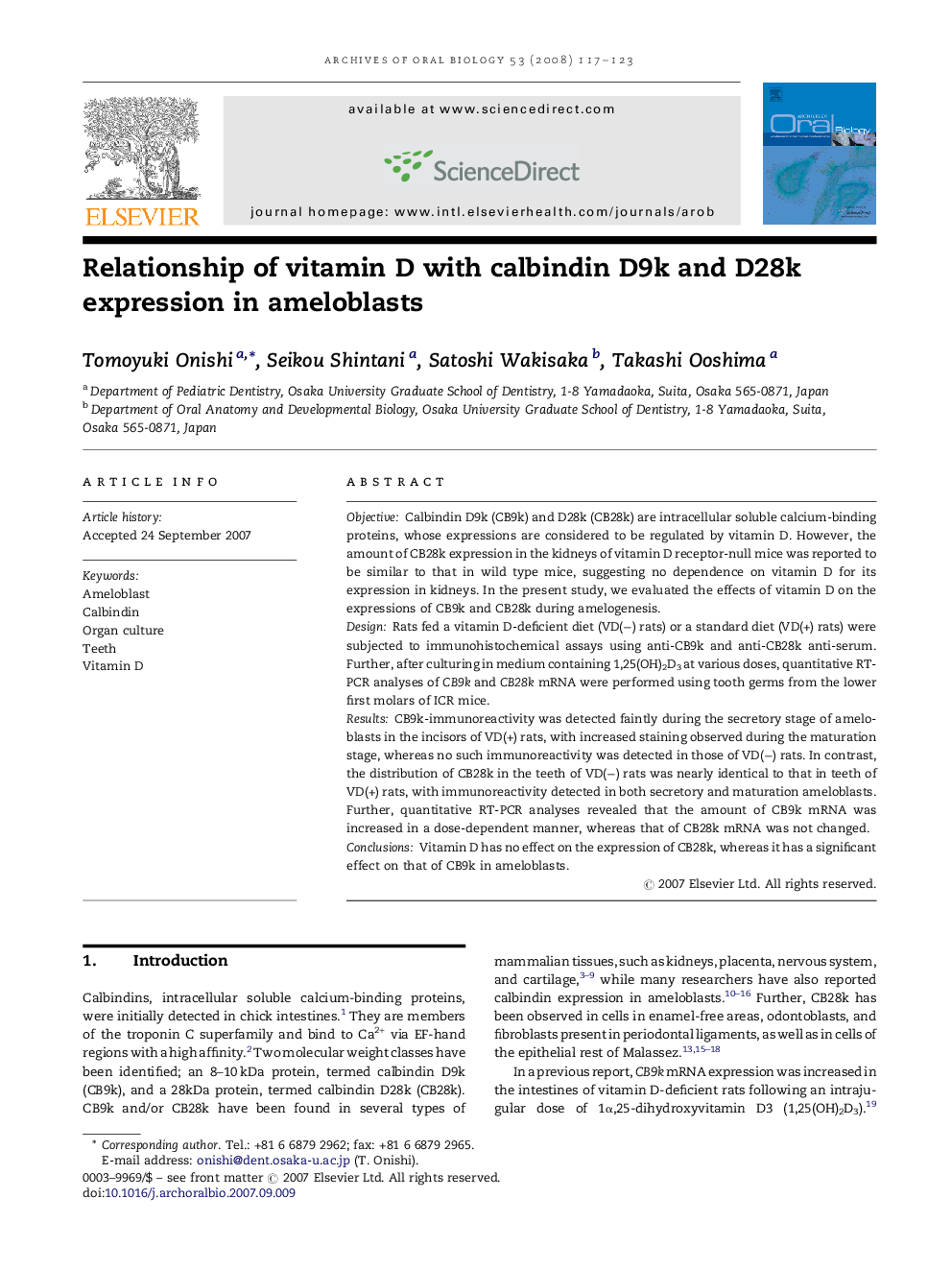| Article ID | Journal | Published Year | Pages | File Type |
|---|---|---|---|---|
| 3121184 | Archives of Oral Biology | 2008 | 7 Pages |
ObjectiveCalbindin D9k (CB9k) and D28k (CB28k) are intracellular soluble calcium-binding proteins, whose expressions are considered to be regulated by vitamin D. However, the amount of CB28k expression in the kidneys of vitamin D receptor-null mice was reported to be similar to that in wild type mice, suggesting no dependence on vitamin D for its expression in kidneys. In the present study, we evaluated the effects of vitamin D on the expressions of CB9k and CB28k during amelogenesis.DesignRats fed a vitamin D-deficient diet (VD(−) rats) or a standard diet (VD(+) rats) were subjected to immunohistochemical assays using anti-CB9k and anti-CB28k anti-serum. Further, after culturing in medium containing 1,25(OH)2D3 at various doses, quantitative RT-PCR analyses of CB9k and CB28k mRNA were performed using tooth germs from the lower first molars of ICR mice.ResultsCB9k-immunoreactivity was detected faintly during the secretory stage of ameloblasts in the incisors of VD(+) rats, with increased staining observed during the maturation stage, whereas no such immunoreactivity was detected in those of VD(−) rats. In contrast, the distribution of CB28k in the teeth of VD(−) rats was nearly identical to that in teeth of VD(+) rats, with immunoreactivity detected in both secretory and maturation ameloblasts. Further, quantitative RT-PCR analyses revealed that the amount of CB9k mRNA was increased in a dose-dependent manner, whereas that of CB28k mRNA was not changed.ConclusionsVitamin D has no effect on the expression of CB28k, whereas it has a significant effect on that of CB9k in ameloblasts.
